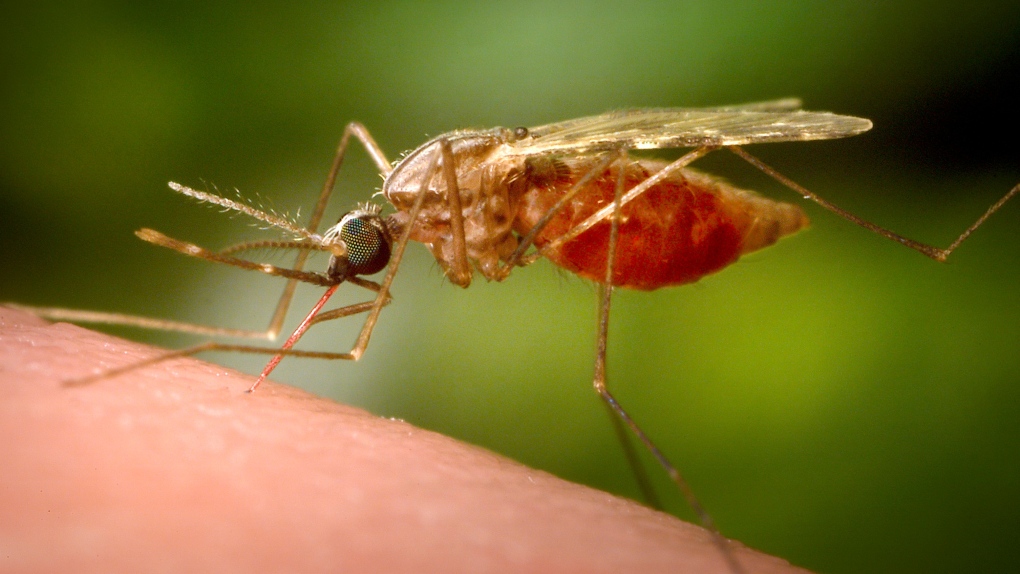Mosquito mayhem: Why the pests are so bad this year in Ontario
They buzz. They bite. They carry diseases that can be bad for your health.
It seems there’s more mosquitoes than ever this year – and people are noticing.
“This season has been absolutely nuts,” says Matthew Myers, office manager for Mosquito Hero in Waterloo.
Pest control services like the one Myers works at have been buzzing.
“We're finding the phones are ringing off the hook,” he says.
WHY ARE THERE SUDDENLY SO MANY MOSQUITOES?
So, why might the pests be more pesky in some areas?
“Anytime water is stagnant on a property for more than four days, mosquito populations multiply at a very fast rate,” Myers says.
“We found this year in May, early rain, and that rain kept people off their properties. They weren't able to get out and do their typical cleanups because we were getting it so consistently.”
It could also be there are more species of mosquitoes. They travel with human goods across the world and breed in their new homes, creating types of mosquitoes that never existed before.
“We're finding an increased mosquito population -- they're an absolute nuisance,” Myers says.
Warmer temperatures caused by climate change also allows some types of mosquitoes to reproduce faster.
 This 2014 photo made available by the U.S. Centers for Disease Control and Prevention shows a feeding female Anopheles funestus mosquito. (James Gathany/CDC via AP)
This 2014 photo made available by the U.S. Centers for Disease Control and Prevention shows a feeding female Anopheles funestus mosquito. (James Gathany/CDC via AP)
WHAT VIRUSES DO MOSQUITOES CARRY IN ONTARIO?
Mosquitoes in Ontario can be infected with West Nile virus, which they can pass on to humans with a bite.
“In most people, West Nile virus will not cause any symptoms,” says Rebecca Piovesan, public health inspector for the Region of Waterloo. “You can be infected, and you're not even going to show any signs or symptoms. But in some people, they can experience mild flu-like illness -- so fever, headache, body ache, tiredness, possibly a rash. And in very rare cases, illness might be extreme.”
Region of Waterloo Public Health is not overly concerned, but they are keeping a watchful eye.
“We monitor for West Nile virus in mosquitoes and people. We identify mosquito breeding grounds like standing water sites and catch basins. And then we also control mosquito populations by larviciding,” Piovesan says.
The region began its annual of larvicide application on June 1. Locations include catch basins, sewage lagoons and ditches and standing water. The region said the application of larvicide will last until Aug. 31.
HOW TO KEEP MOSQUITOES AWAY
Pest control companies like Mosquito Hero can help homeowners treat the pests with a safe and special spray.
“We’re going to treat a bush like this,” Myers says, demonstrating how the liquid is applied. “The spray is going to push up the leaves so we get spray on both sides of the plant.”
Experts advise wearing loose-fitting, light-coloured and tightly-woven clothing to reduce your risk of being bitten.
Repellants like DEET and some natural oils can also help keep the pests away.
CTVNews.ca Top Stories

Downtown Vancouver stabbing suspect dead after being shot by police
A suspect is dead after being shot by police in a Vancouver convenience store after two people were injured in a stabbing Wednesday morning, according to authorities.
2 Canadians confirmed dead in Poland, as consular officials gather information
Two Canadians have died following an incident in Poland, CTV News has learned.
Ontario Premier Doug Ford calls Donald Trump 'funny guy' in Fox News interview
Ontario Premier Doug Ford called U.S. president-elect Donald Trump a 'funny guy' on Wednesday in an interview with Fox News for his comment that Canada should become the United States's 51st state.
DEVELOPING As police search for suspect, disturbing video surfaces after U.S. health-care CEO gunned down in New York
UnitedHealthcare CEO Brian Thompson was killed Wednesday morning in what investigators suspect was a targeted shooting outside a Manhattan hotel where the health insurer was holding an investor conference.
Toddler fatally shot after his 7-year-old brother finds a gun in the family's truck
A two-year-old boy was fatally shot when his seven-year-old brother found a gun in the glovebox of the family's truck in Southern California, authorities said.
Millions in Cuba remain in dark after nationwide blackout
Cuba said it was generating only enough electricity to cover about 1/6th of peak demand late on Wednesday, hours after its national grid collapsed leaving millions without power.
'Utterly absurd': Freeland rebuffs Poilievre's offer of two hours to present fall economic statement
Deputy Prime Minister and Finance Minister Chrystia Freeland has rebuffed Conservative Leader Pierre Poilievre's offer to give up two hours of scheduled opposition time next Monday to present the awaited fall economic statement as 'utterly absurd.'
Canada Post stores continue to operate during strike — but why?
As many postal workers continue to strike across the country, some Canadians have been puzzled by the fact some Canada Post offices and retail outlets remain open.
Mattel sued over 'Wicked' dolls with porn website link
Mattel was sued this week by a South Carolina mother for mistakenly putting a link to an adult film site on the packaging for its dolls tied to the movie 'Wicked.'

































